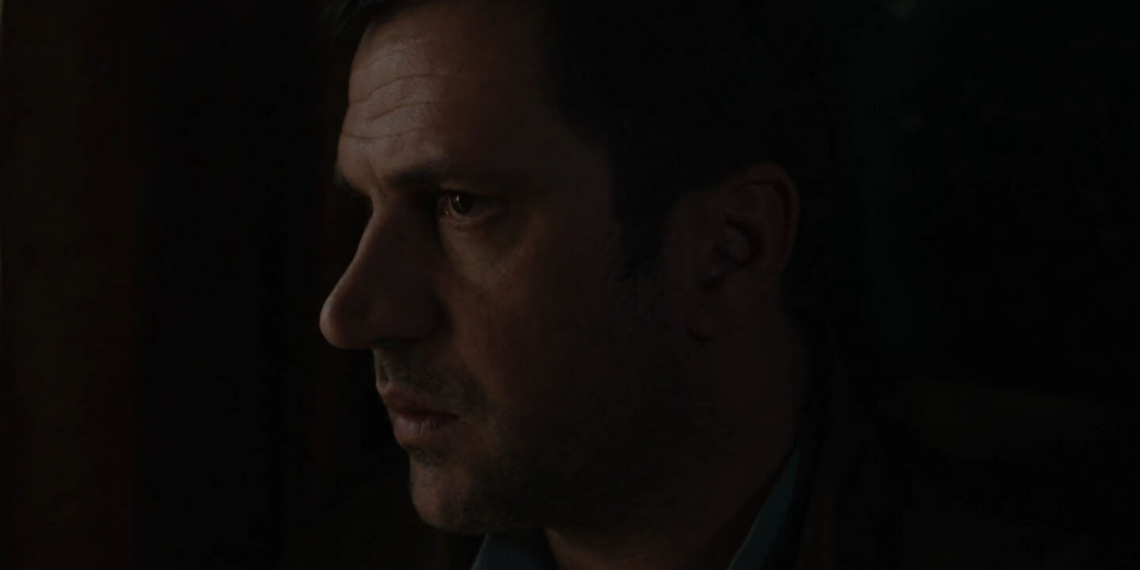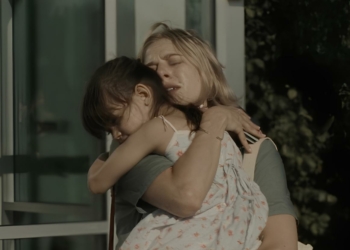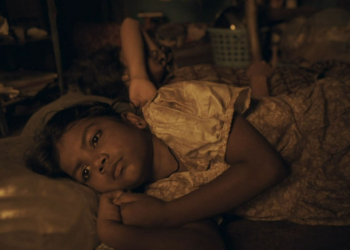In truth, Nebojsa Slijepcevic’s The Man Who Could Not Remain Silent (Croatian: Covjek koji nije mogao sutjeti) is—and to great effect—more about the terrible effect he has on the man who could not speak up. An incredibly tense drama whether or not you are familiar with the Štrpci massacre thirty-two years ago, it uses its titular character as the spectre that begins its haunting even before anyone, including the deuteragonist, is aware of his purpose. If there was ever a character who has been dead from the very beginning, it is this film’s version of Tomo Buzov. Therein is its great tragedy.
The film opens on Dragan (Goran Bogdan), comfortable and asleep until the train he is on is in the thick of trouble. Soldiers have begun coming aboard and hauling off Bosniaks, but they would have you think nothing of it for how routine and orderly everything is. In fact, when doom comes knocking on the door of our cast’s compartment, the undocumented Milan (Silvio Mumelas) is told to follow the soldier (Martin Kuhar) so that the military may “look [him] up on the system”. Dragan, who had assured Milan of safety and protection, withers from wavering resistance to a terrifying compliance. Indeed, for anyone coming into the film blind, it has you believe in Dragan as the hero who will save the day until he is producing his documents, answering questions without countering them, until finally he has fallen so thoroughly in the audience’s eyes that he is more contemptible than villainous. A triad thus forms between Dragan, Milan, and the soldier, while Tomo (Dragan Micanovic) is so far into the background that he is both out of focus and nearly completely still.
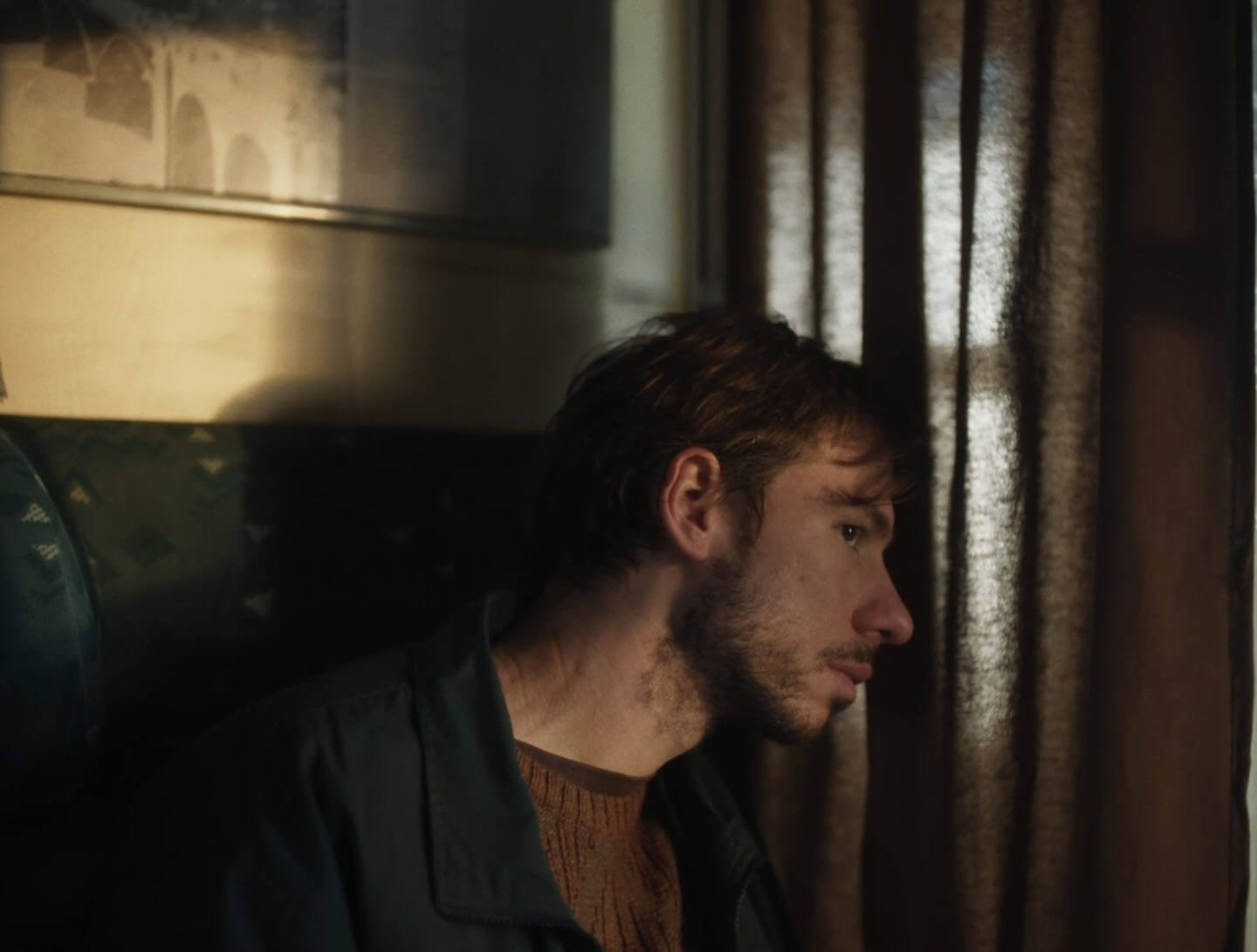
It is well past the 8-minute mark before Tomo declares his presence. It unsettles immediately because of how starkly it contradicts Dragan who has been for many minutes now unable to look Milan in the eye. The frame’s scope enlarges, the space acquires depth, and the claustrophobic, fearful tension of the room is charged with something more yet: actual resistance. This time, the reassurance to Milan has more to it too.
What is even more interesting than the contrast between Dragan and Tomo is that because we share Dragan’s perspective, we experience his fear and his shame as well. The shame is a heavy, heavy thing, almost terrifying in its weight. And though he knows, and we know through instinct, the fate he has avoided for himself, the burden of guilt looks so enormous that he would have been better off being the man who did not remain caught in the vise of fear. This is one of those rare films that illustrate the substance of cliches in all their original depth and power. For once—as Tomo’s courage and Dragan’s silence shriek together in violent reverberation—we do feel the horror of cowardice, we begin to know that dying would, in fact, be better than its shame.
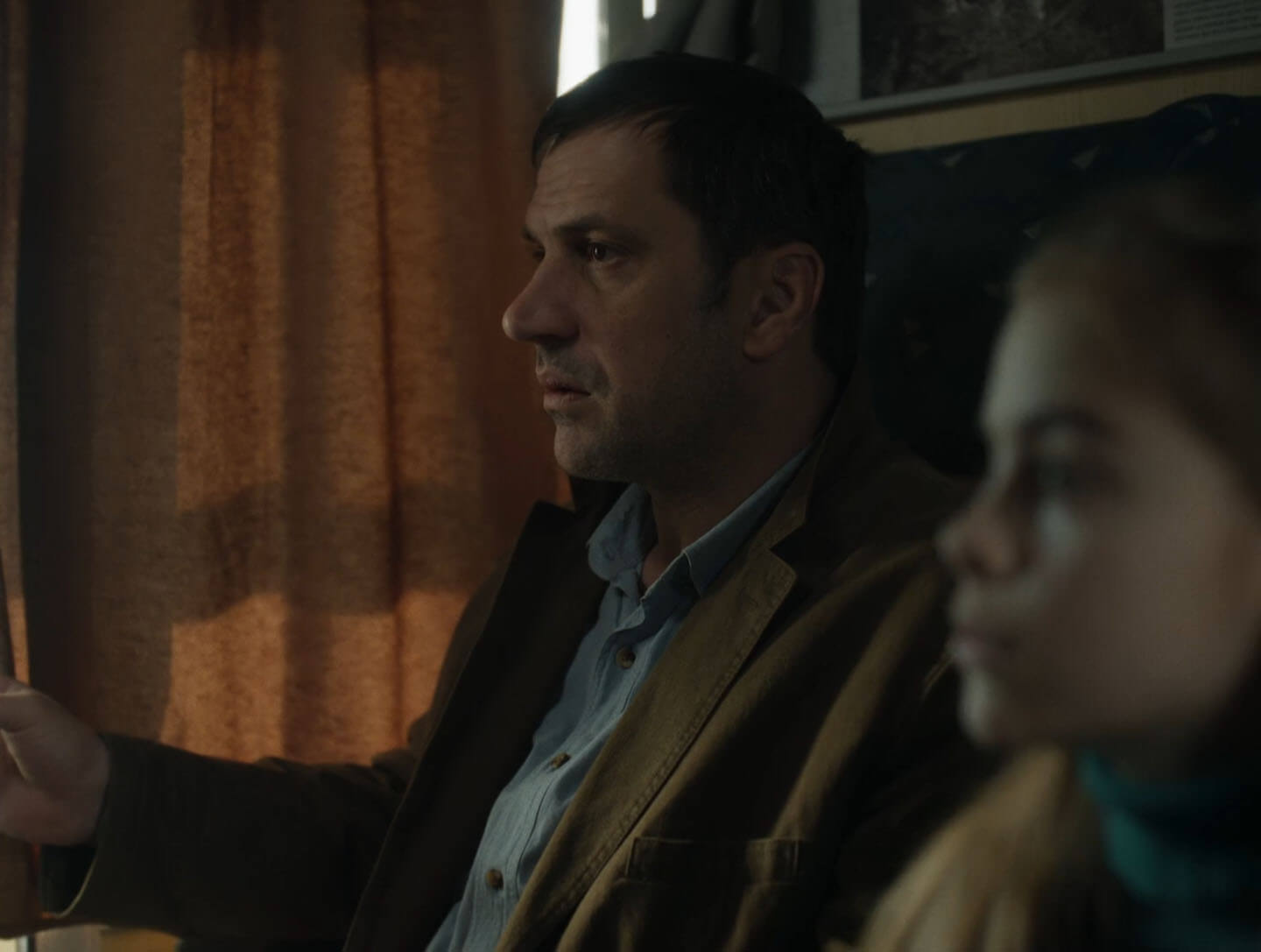
The Man Who Could Not Remain Silent does in its own, innovative way what The Zone of Interest did last year. It is a better biopic precisely because it shifts attention away from Buzov’s heroism—and the attendant pitfalls of valorisation without reflection—and onto the very person he could not allow himself to be.
Watch The Man Who Could Not Remain Silent Oscar Nominated Short Film
The Man Who Could Not Remain Silent: A Stunningly Astute Massacre Drama
-
Direction
-
Cinematography
-
Screenplay
-
Editing
-
Music


